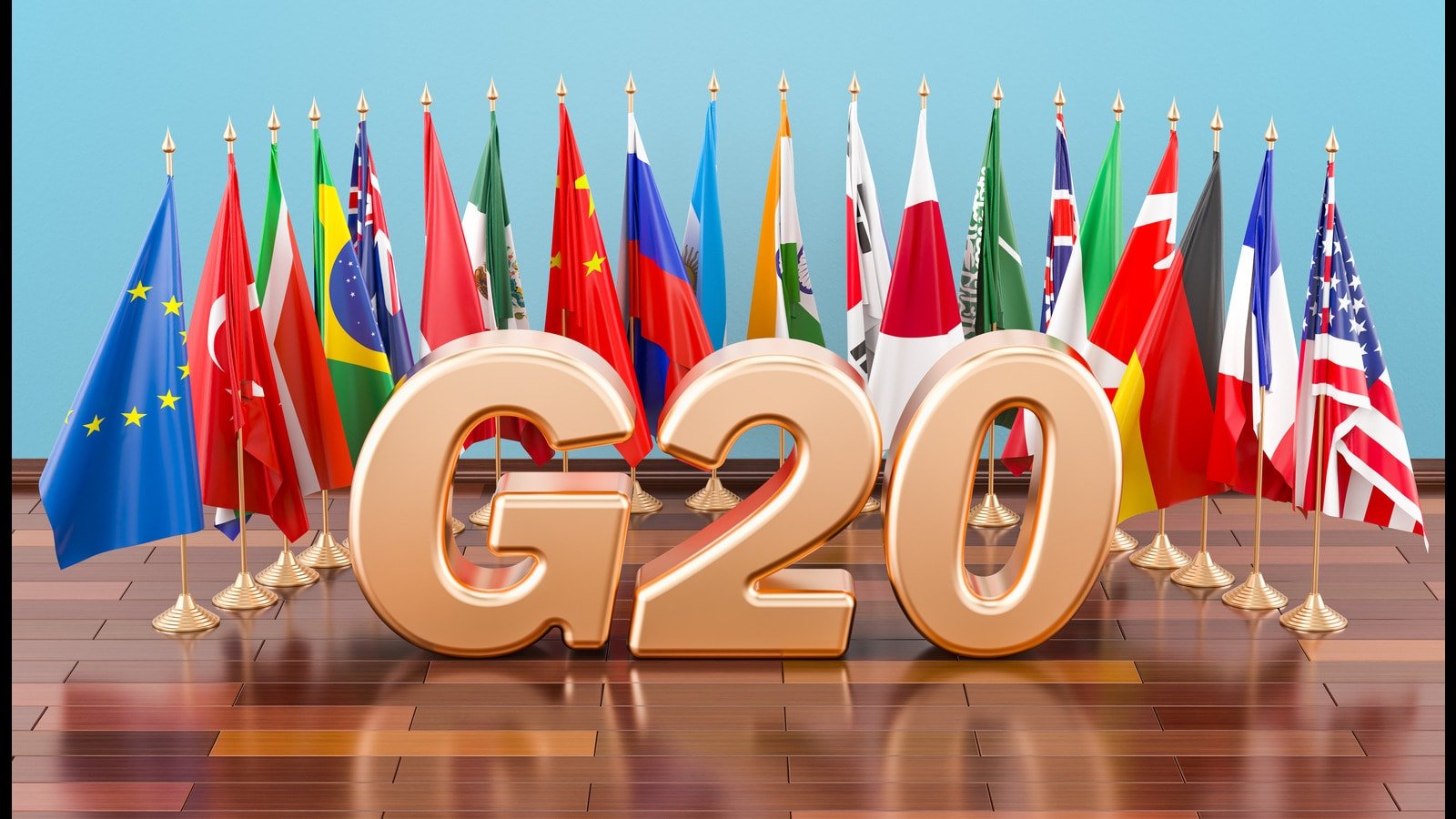The Group of 20 (G20) has emerged as the primary forum for international economic and financial cooperation. India assumed the presidency of the powerful grouping G20 on 1 December 2022, symbolising the motto and showcasing its philosophies of “Vasudhaiva Kutumbakam”, or “One Earth, One Family, One Future”.

What does One Earth, One Family, One Future imply?
- India has committed to focusing its year as chairman on “healing our ‘One Earth,’ creating harmony within our ‘One Family,’ and giving hope for our ‘One Future’ and LiFE” (Lifestyle for Environment).
What is Troika?
- The troika means previous, current, and incoming presidency which comprise Indonesia, India, and Brazil, respectively.
- In these turbulent economic times, the troika is driving the global agenda at the G20.
- The G20 is more than just a policy forum; it is tasked with reconciling the irreconcilable.
- The group’s number of talks and years together has resulted in a mixed bag of success.
How India should organise its global agenda: Principles that have been proposed
- Democratizing the agenda-setting process: It is critical to bring all of the partner nations together to understand their priorities when developing the global agenda. It will ensure diversity, equity, inclusivity, long-term commitment, and sustainability. This can also help to ensure that domestic policies are consistent with global priorities.
- Strike a balance between the needs of developing and developed countries: Because India bears a greater burden, it should not appear biassed. Similarly, developed countries should be more cautious with their abundant natural resources. We must think in terms of multilateralism to create a win-win situation rather than a zero-sum game.
- It is critical to concentrate on predetermined priorities: It is critical to prevent the G20 from suffering from over-expansion of its mandate, as other multilateral forums such as the World Trade Organization (WTO) have. While being ambitious, it is critical to set defined, limited long-term priorities.
- Set specific, measurable, and attainable goals: Measurable outcomes with short-, medium-, and long-term goals are essential. In addition to ensuring inclusivity, sustainability, and accountability, financial considerations must be made.
- Avoid reinventing the wheel: Duplication of efforts is necessary to encourage faster mutual growth. It is critical to avoid duplication of existing international institutions, fragmentation of financial resources, and a weakening of the existing multilateral organisations’ coordinating role. The ‘collaborative and cooperative frameworks are critical to successful outcomes.
- To promote solidarity, prejudice-free dialogues are required: Prejudices on international forums can endanger global security. As an antidote, dialogue can help with conflict prevention, management, and resolution.
- Mutual protection is required: Mutual protection from disguised elements of neocolonialism and hegemony is critical for breaking down socio-cultural and geopolitical barriers between the Global South and the Global North.
- Antyodaya (rise of the last person) principle: The global lens must capture every aspect of a community through inclusive dialogues, from the most marginalised to the most privileged. It is critical to establish global and national vertical and horizontal plans with the ‘last person standing in line’ in mind.
India’s current international image
- India’s role in global governance: While India’s successes are being assessed and unprecedented hopes are being expressed about our future, the country’s trust in the global governance architecture is evident through several examples from the recent past, like the roll-out of COVID-19 vaccines in India as well as remarkable vaccine diplomacy initiative ‘Vaccine Maitri’.
- Fastest-growing economy: With one of the world’s largest and fastest-growing economies, the country has earned its stripes through difficult external and internal circumstances.
- India ranks first in the global climate change performance index: Similarly, India has been named one of the top five countries in the world in terms of Climate Change Performance Index. Furthermore, it has taken the lead in accelerating the transition to cleaner energy sources.
- Economic nature of social capitalism: India has earned a geopolitical sweet spot in the world thanks to its social capitalism.
@the end
India has the potential to lead the G20 agenda in a way that the world has never seen before. Keeping the fundamental principles in mind when developing agendas, action plans, and decisions through collaborative efforts has the potential to produce revolutionary and positive results. The vision of shaping a new paradigm of human-centric globalisation is promising, assuming equal support from the Global North and South communities.
Source: https://indianexpress.com/article/opinion/columns/indias-g20-presidency-setting-the-world-agenda-8301230/
